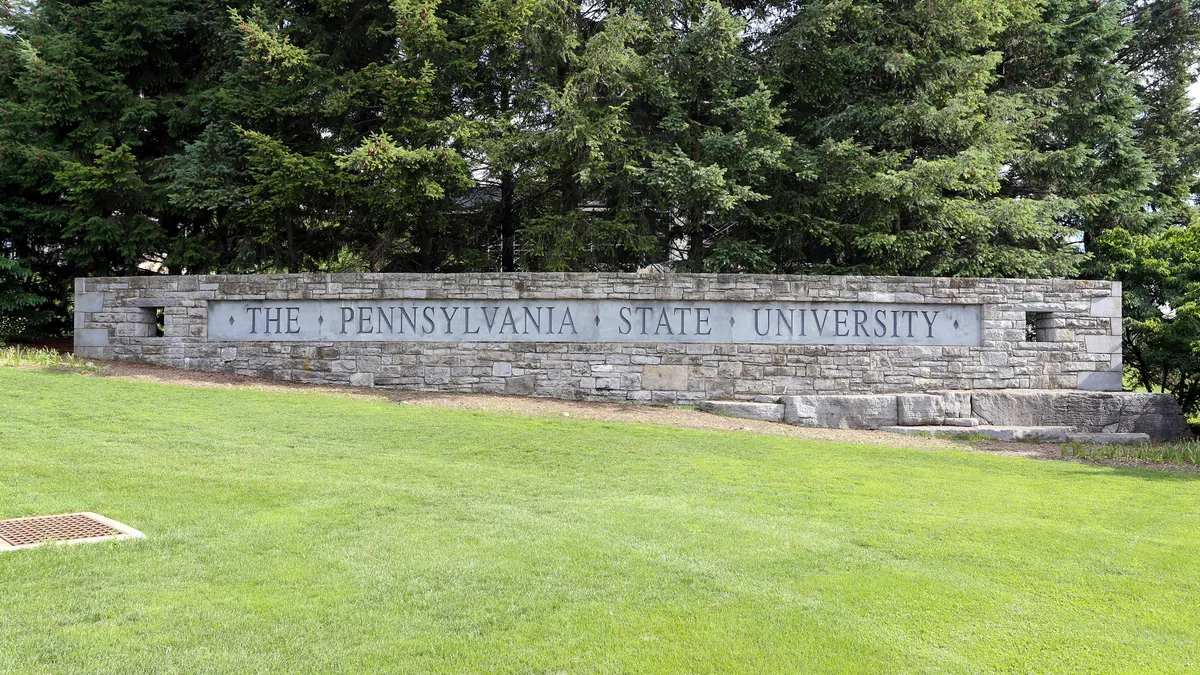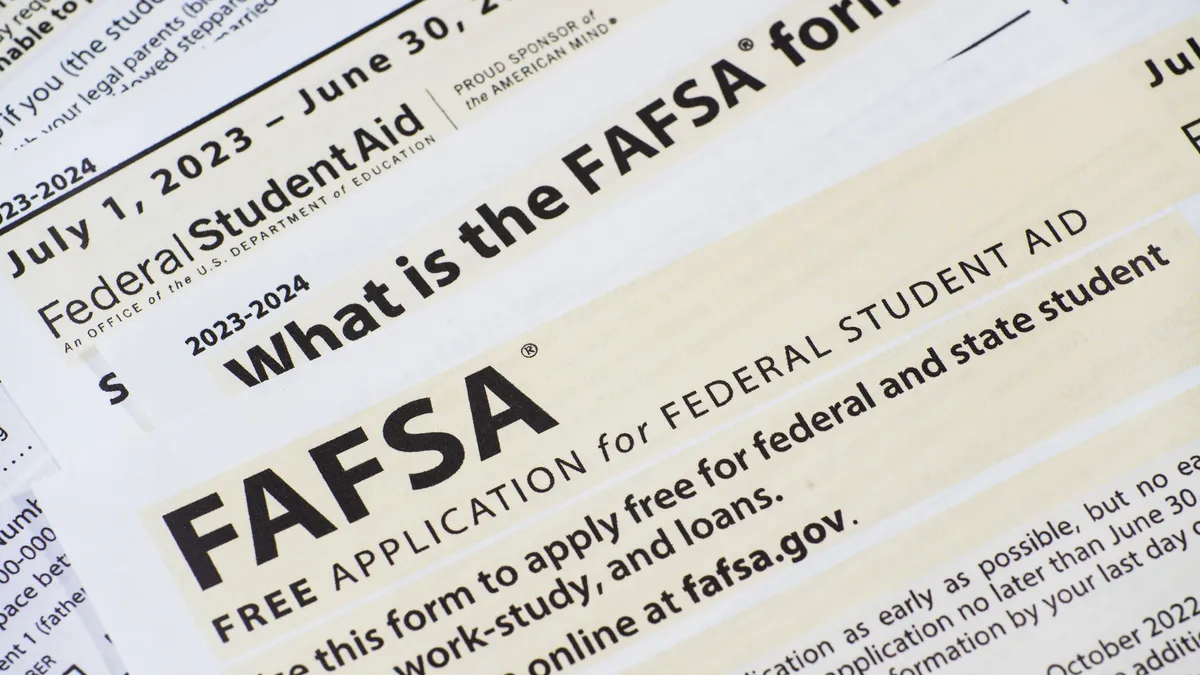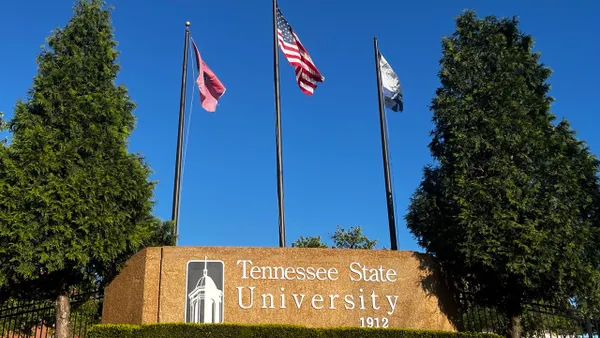Dive Brief:
- Pittsburgh Career Institute, a for-profit institution, planned to close effective Wednesday, primarily blaming the U.S. Department of Education’s decision to revoke recognition of its accreditor earlier this year.
- The institute’s president said it could not survive amid restrictions the Education Department placed on colleges accredited by the Accrediting Council for Independent Colleges and Schools — ACICS — including that they not enroll new students.
- Some of the institute’s students were able to finish their programs before it shut down, while others can transfer to other local institutions, it said. The institute enrolled nearly 300 students as of fall 2021, according to the most recently available federal data.
Dive Insight:
The Pittsburgh Career Institute represents another institutional casualty in the drama surrounding ACICS, a long-troubled accreditor that caters primarily to for-profits.
In August, the Education Department pulled ACICS’ federal recognition, meaning it could no longer accredit colleges. Federally recognized accreditors are meant to ensure colleges meet financial and academic benchmarks and also serve as the gatekeepers of their federal Title IV aid.
When an institution loses accreditation, it also loses access to federal student aid dollars, without which most colleges cannot survive.
Accreditors themselves are subject to certain standards, which the Education Department said ACICS had not been in compliance with for years. After the department ended ACICS’ recognition earlier this year, it gave institutions under the accreditor’s purview 18 months to find a new one.
During that 18 months, ACICS-accredited colleges cannot enroll new students who would not be able to complete their programs in that time.
The department’s constraints spelled the end for the Pittsburgh Career Institute, its president, Patti Yakshe, said in a statement.
The institute “worked tirelessly in an effort to secure new opportunities that would allow the school to continue operations” until the restrictions were lifted — unsuccessfully, Yakshe said.
The president did not specify what those new opportunities were.
Pittsburgh Career Institute scheduled the last day of instruction for Wednesday, but Yakshe said some officials will stay on campus until the end of the year to help students completing externship and clinical programs and assist others with transfers and their transcripts.
News reports suggest the sudden closure shocked students when the institute announced it earlier this month, giving them only weeks to develop alternative plans. It offered six programs, according to its website, including in surgical and veterinary technology.
The institute planned to continue to offer financial aid and academic support through the period it was shutting down, Yakshe said. It also planned to keep its career services wing active for graduates for an unspecified time.
Yakshe did not mention assistance for employees in the message.
“We understand that news of this decision will be met with some level of uncertainty, and we are committed to keeping you informed of our progress through ongoing communication,” Yakshe said.
The institute isn’t the only ACICS-accredited college to attribute its closure to the Education Department’s decision.
Stratford University, a for-profit institution with campuses in Virginia and Maryland, announced late in September it would shut down at the end of that month. At the time, Stratford’s president accused the Education Department of overstepping its authority with its limits on ACICS colleges.
Policy experts, however, expressed skepticism the restrictions caused Stratford’s demise, noting that ACICS had run into trouble for years before.
The Obama administration first tried to yank ACICS’ recognition in 2016, citing similar noncompliance problems to those at issue this year. But the accreditor successfully sued the Education Department, which eventually led to Betsy DeVos, the former education secretary under President Donald Trump, reinstating it in 2018.
Problems persisted with ACICS in the following years, though DeVos, who was widely viewed as more sympathetic to for-profit institutions than her predecessor, did not revoke its recognition.
ACICS has been on a downslide for years. It once accredited more than 230 institutions, but by the time the Education Department ended recognition in August, that number had dwindled vastly.
As of early September, it accredited 44 institutions with 67 campuses, two-thirds of which participate in the Title IV financial aid program. At the time, ACICS said it would stop operating by March 2024.
The Pittsburgh Career Institute first started as the Western School of Health and Business Careers in October 1980, according to its website. A couple of years later, it was accredited by the Accrediting Bureau of Health Education Schools.
Eventually, it was bought by what was then known as Career Education Corp., a company repeatedly criticized over the years for running shoddy for-profit institutions. That owner in 2008 changed the institution's name from Western to the Sanford-Brown Institute, a now-shuttered line of for-profit schools.
In 2014, before the mass Sanford-Brown shutdown, another company, New Opportunity Calling LLC, acquired what would become the Pittsburgh Career Institute.













